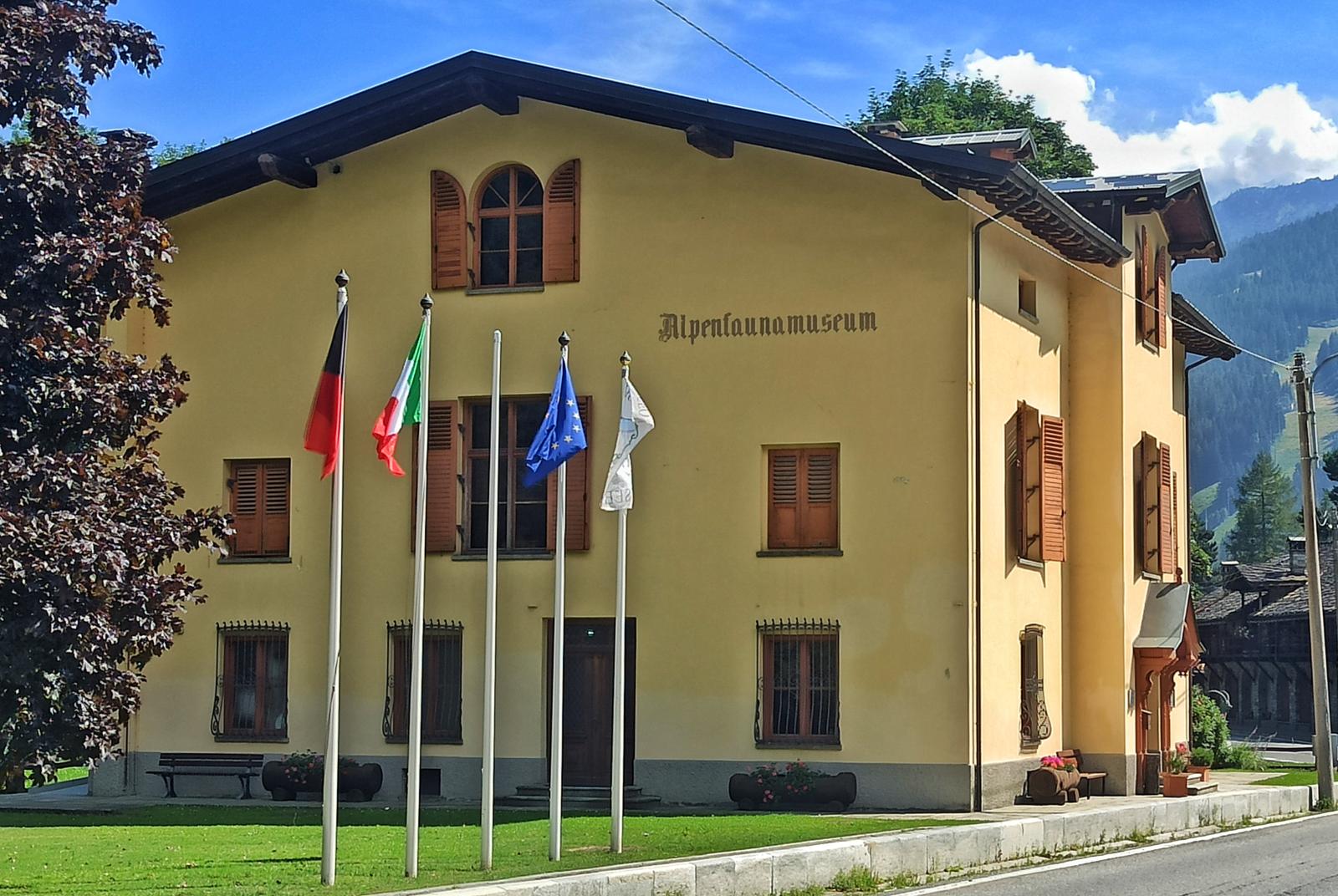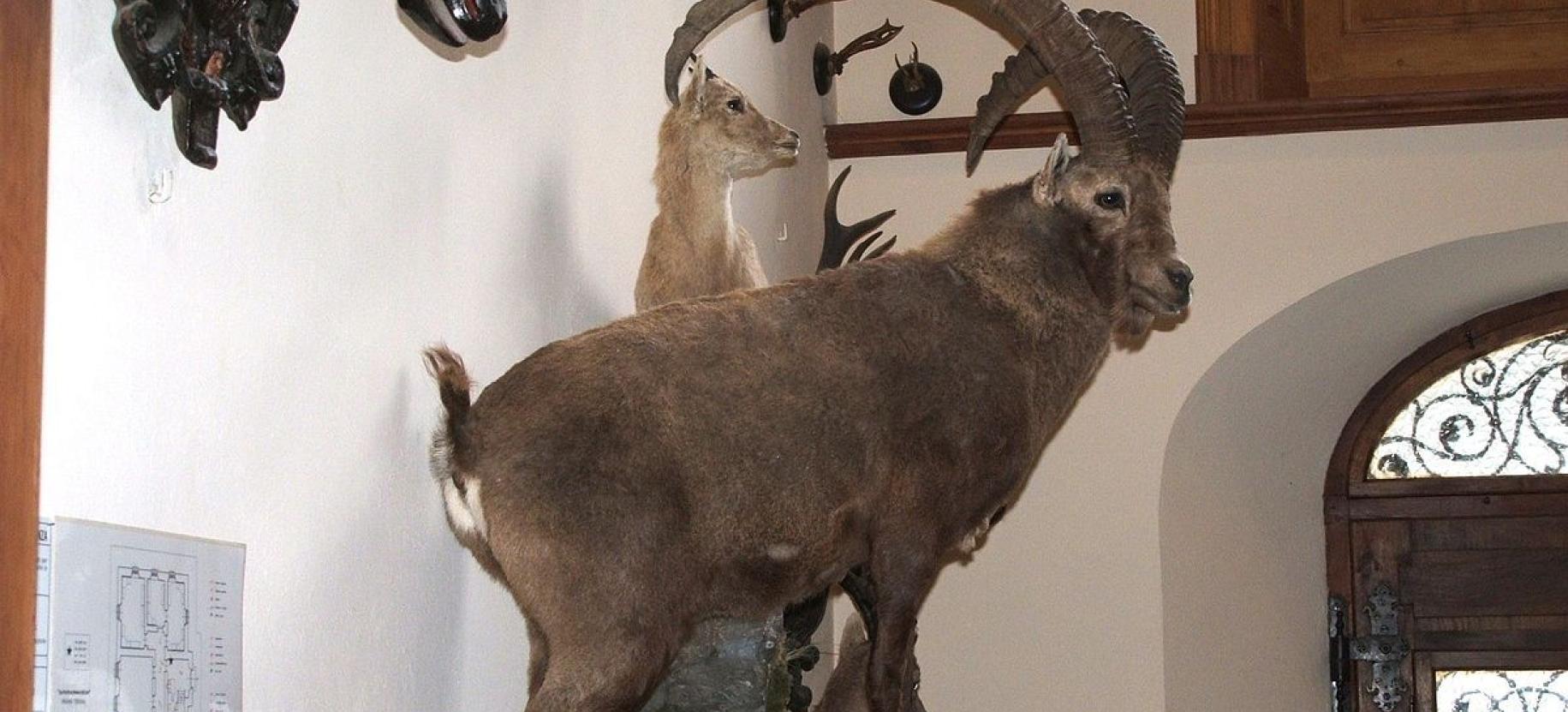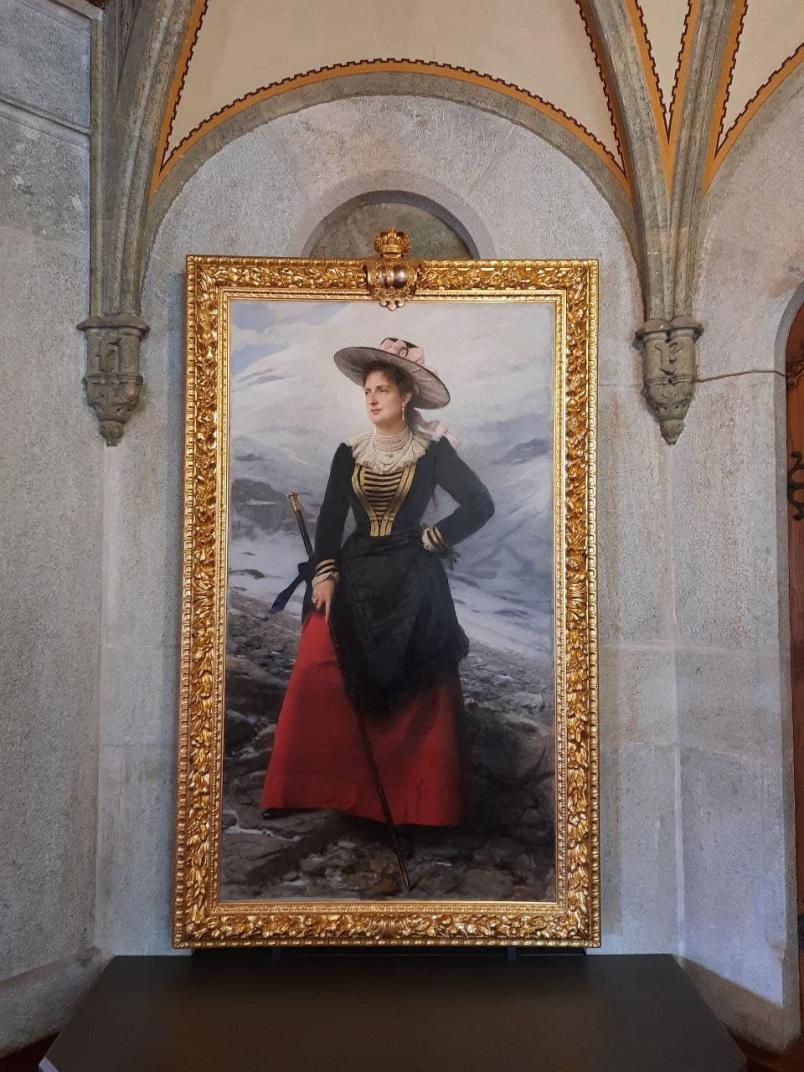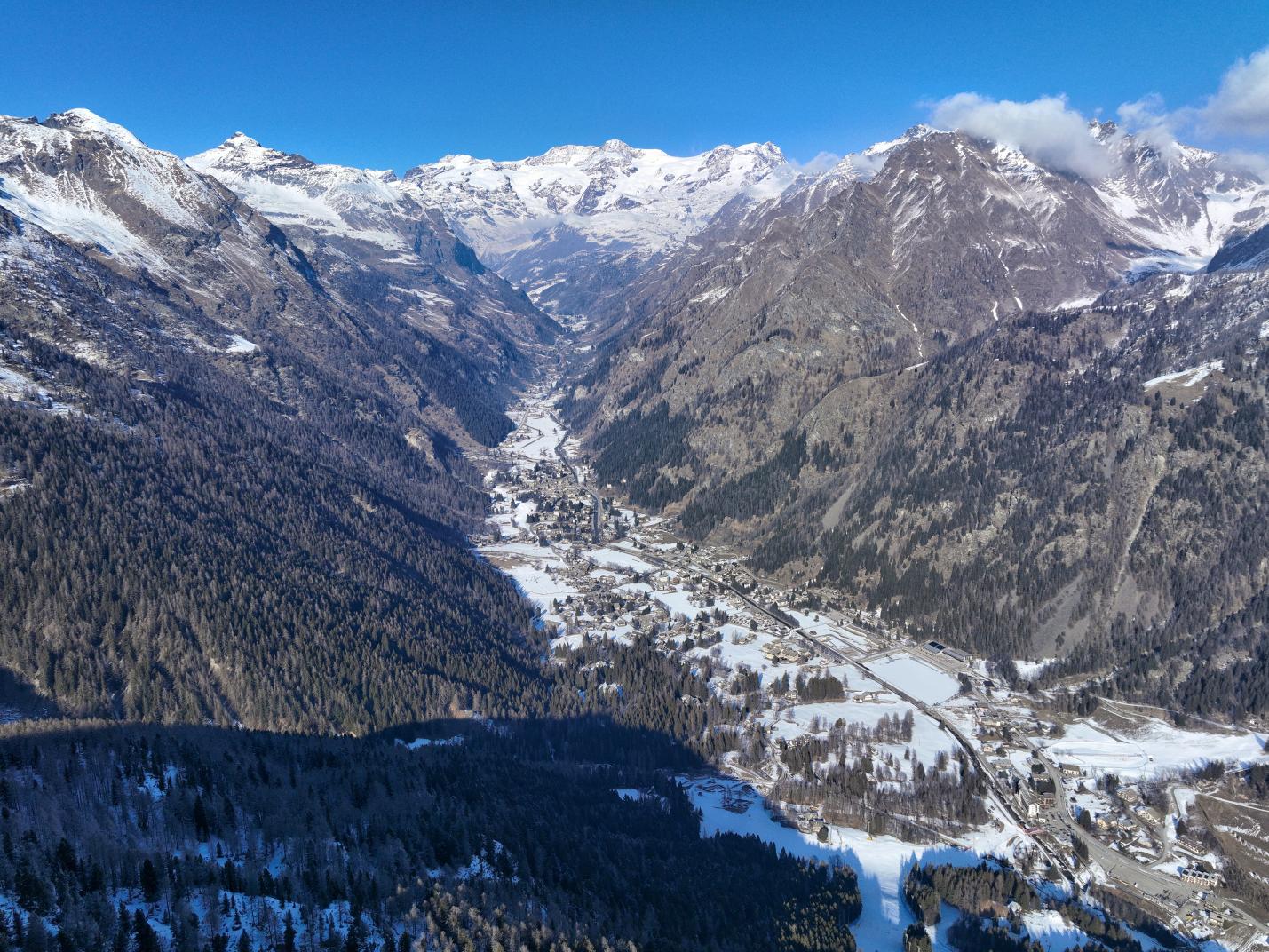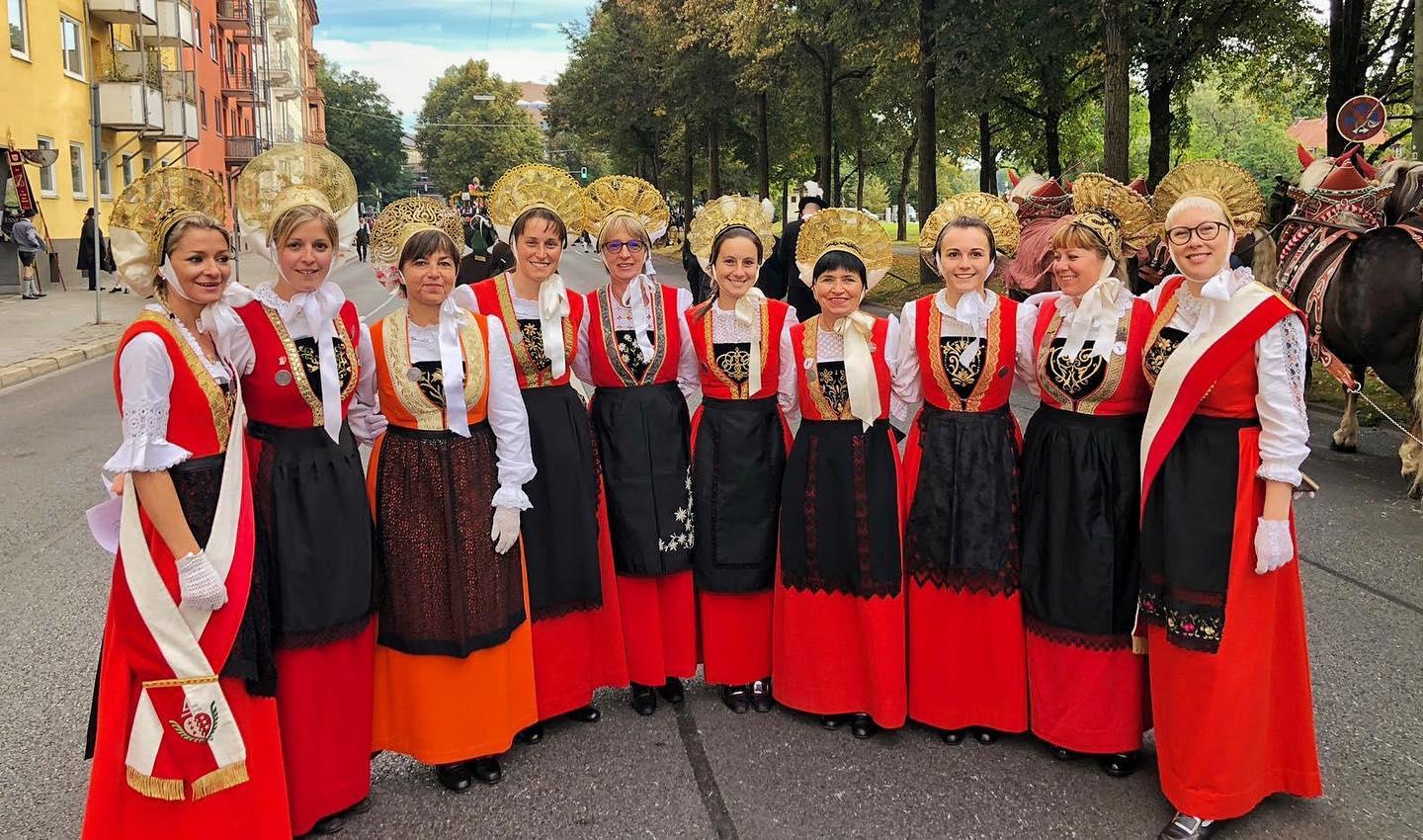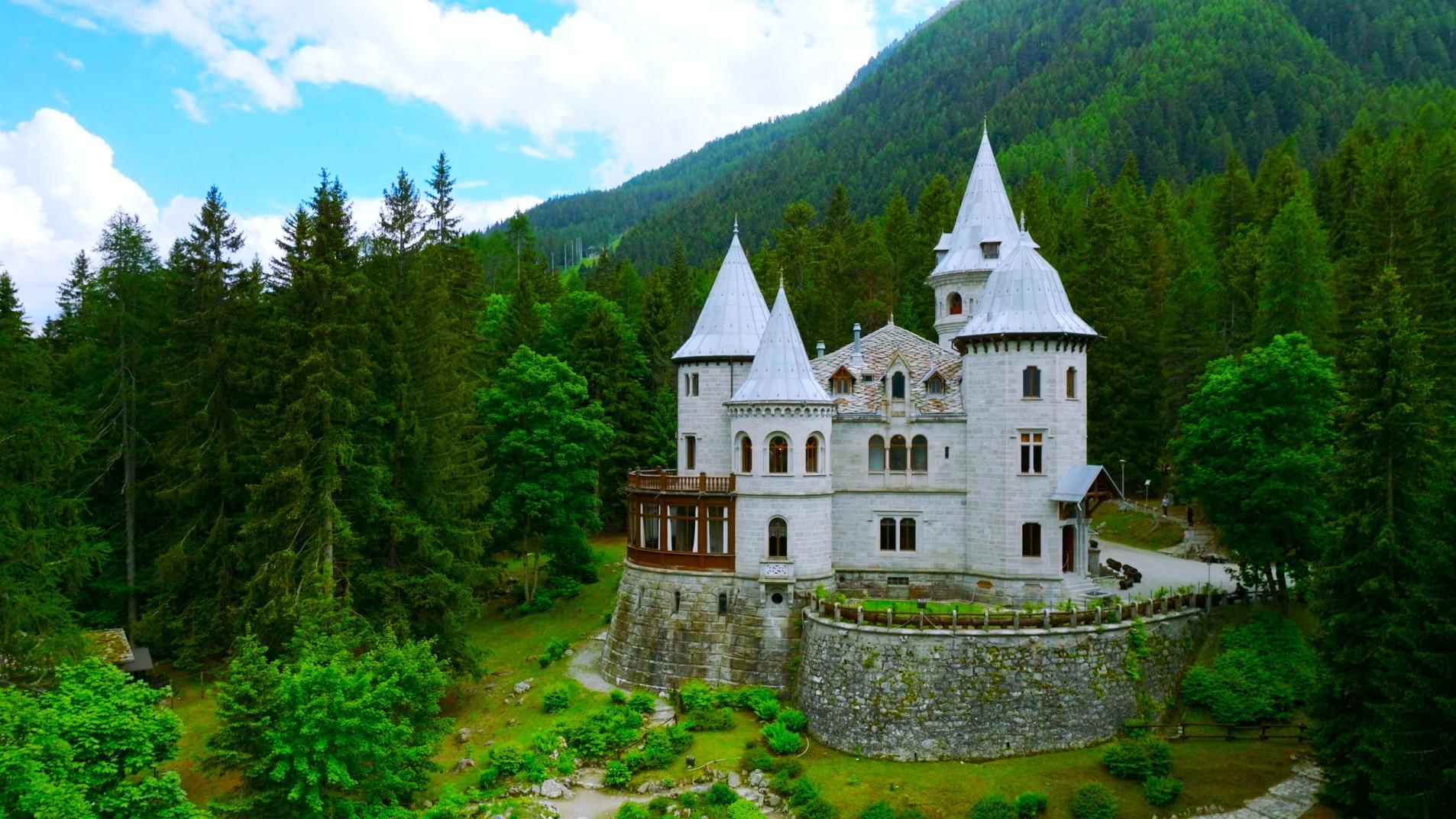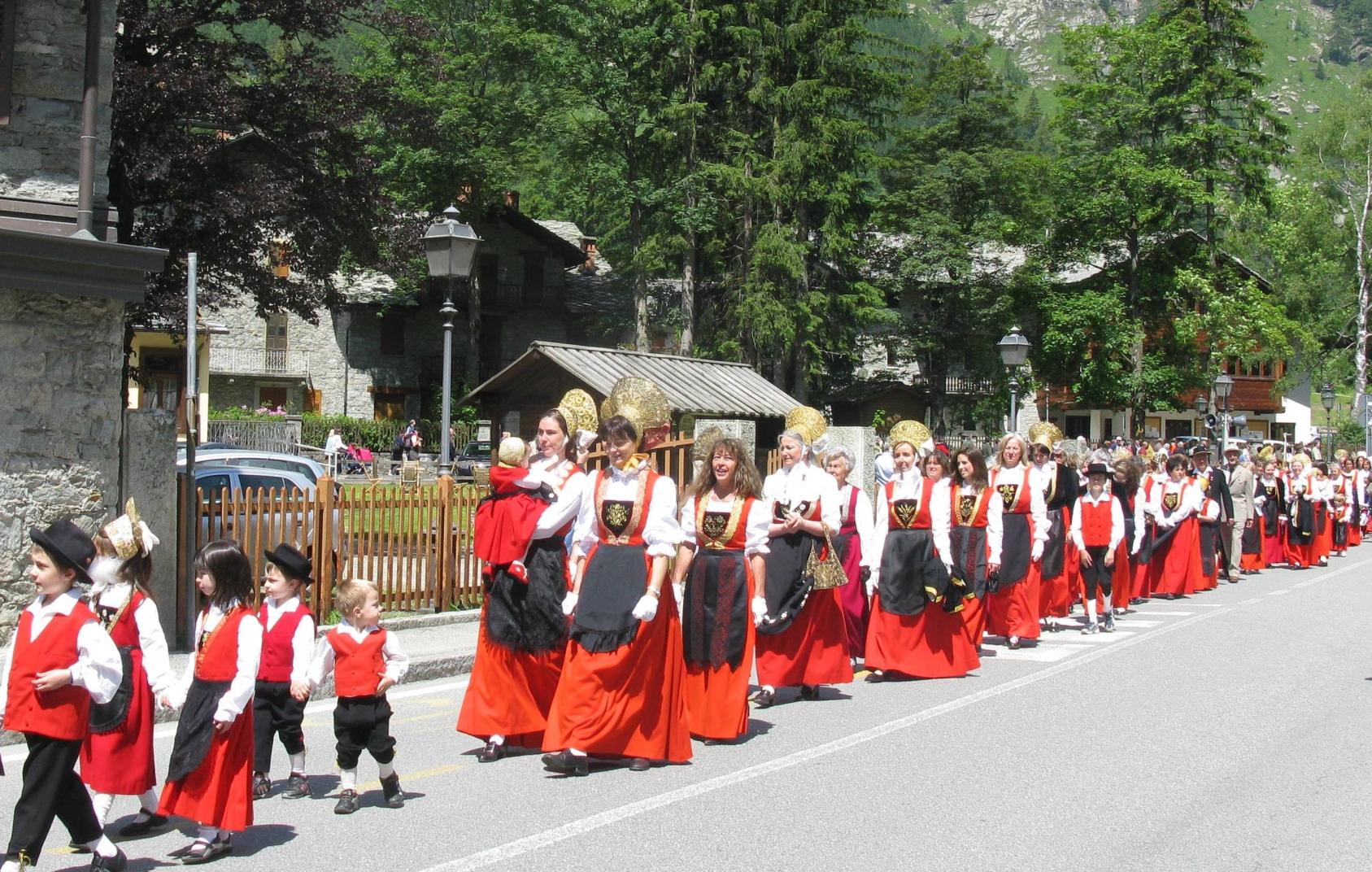The history of the Alpenfaunamuseum "Beck-Peccoz" dates back to 1882 when Baron Luigi Beck-Peccoz (1841-1894), descendant of a noble "Walser" family of Gressoney, wrote in his will the wish that the collection of Augusta's horns and antlers, inherited from his father, be exhibited in a specially built house; for the execution of this provision he allocated a capital of forty thousand German marks.
His brothers Antonio and Carlo, his executors, had the present building constructed in 1904 in the locality of Predeloasch in Gressoney-Saint-Jean, a few metres from their residence Villa Margherita, now the Town Hall. Subsequently, Egon, Antonio's son, assembled, ordered and exhibited a rich collection consisting not only of hunting trophies, but also antique weapons and various precious family heirlooms: portraits, paintings, themed furnishings, antique coins, books and publications.
At the time, the 'Beck-Peccoz Collection' was visited by the first visitors to the Lys Valley and guests of the noble family. In particular, Queen Margherita of Savoy signed the visitors' book for the first time, and other illustrious personalities later signed it, including the President of the Italian Republic, Luigi Einaudi, on 3 September 1951.
The building, complete with its trophies and antique weapons, was purchased in 1986 by the Autonomous Region of Valle d'Aosta, which took care of the renovation, conservation and preservation of the historical collections. The Alpenfaunamuseum was opened on 24 June 1999. The exhibition is spread over two floors: on the ground floor there are four rooms, adorned with period tapestries, decorated ceilings and boiseries. Three rooms are dedicated to the anatomy, morphology and biology of mountain vertebrates, while a small room next to them shows the most typical mountain environments, with some of the animal species that characterise them: the alpine prairie, the forest and low-altitude rural environments.
The smallest of the rooms houses an accurate armoury of 90 pieces including short and long arms, both for hunting and shooting. Among the most significant ones, from a hunting point of view, are several German combination guns from the 19th century. Worthy of note is a beautiful converted percussion rifle with an octagonal barrel of fine damascus in its original burnishing, marked in gold: Riegen in München. In the centre of the hall, surmounted by the fresco depicting the legend of St. Hubert, is a showcase cabinet displaying documents and photos from the period concerning the museum and the family.
Particular mention should be made of the copy of the letter, addressed to the Academy of Sciences on 10 March 1820, in which Joseph Zumstein first denounced the danger of the ibex's disappearance and suggested protective measures, hence the first Royal Patents of 1821 and the creation of the Gran Paradiso Park in 1922. In this regard, the first ibex releases in the Gressoney Valley at the end of the 19th century by the Barons Beck-Peccoz with animals from their Saint-Marcel and Fenis reserves should be highlighted. So, too, for the conservation of chamois, Baron Luigi Beck-Peccoz, in 1867 set up a well-managed protected area in the Saint-Marcel area, where at the time there were 8 chamois specimens, until an important repopulation of over a thousand animals was achieved.
The Alpenfaunamuseum is not only a place of memory and conservation, but is above all a place of communication, thanks to its high didactic potential and the historical-ethnic significance linked to the area.

